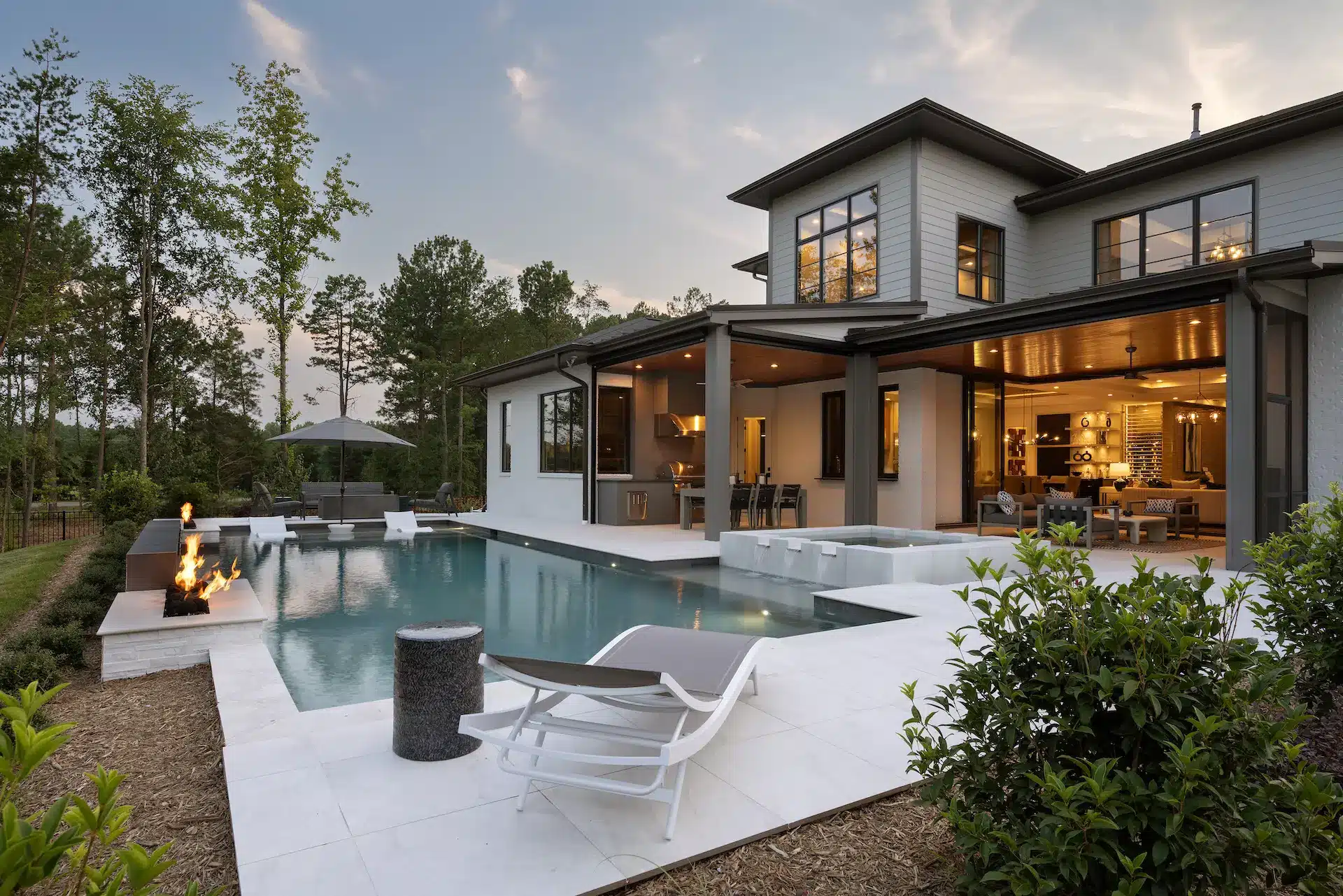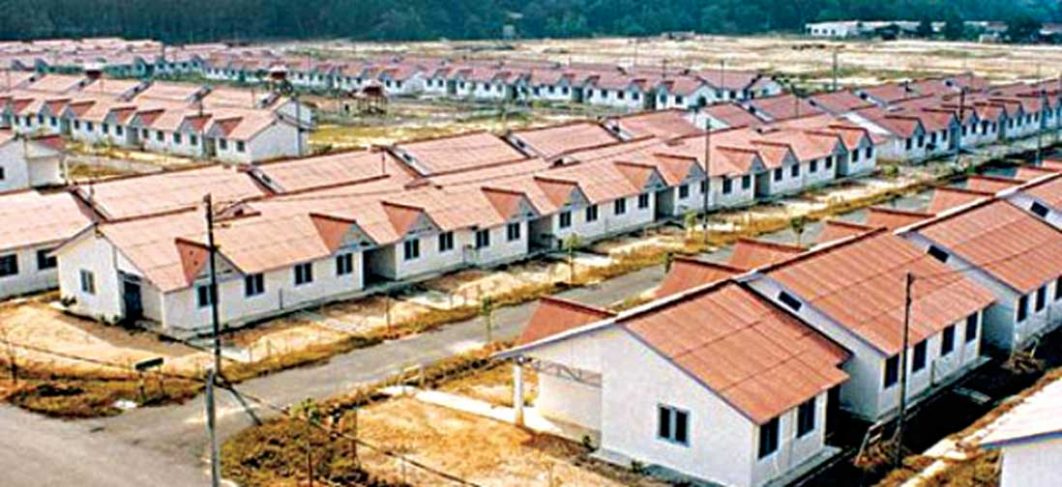
Both social and private (non-subsidised) housing can be rented in the Netherlands. Rules use to both the renter and the landlord. They cover security of tenure, rent, rent increases, maintenance, service charges, etc. Social housing renters on low earnings are entitled to housing benefit if their rent is reasonably high.
- Requesting housing advantage
- Involving the Rent Tribunal
- Search choices of the Rent Tribunal
- Step-by-step prepare for tenants

Social housing
Approximately 75% of the 3 million rental homes in the Netherlands come from housing associations. These associations are responsible among other things for letting social housing, specified as homes for which the initial regular monthly rent is under the then rent limit for liberalised occupancy contracts (economic sector) (in Dutch). The current limit (2024) is EUR 879.66, for tenancy agreements that start in 2024. Each year, housing associations must let 92.5% of their vacant social housing to people with an earnings of up to EUR 47,699 (one-person family) or EUR 52,671 (multi-person household) and no more than 7.5% to people with higher earnings than EUR 47,699 and EUR 52,671 respectively (2024 ). In some regions the housing scarcity is too high for a 7.5% totally free allowance to suffice. In that case are housing associations enabled to consent to an in your area greater portion of totally free allowance with the municipality and occupant's association, approximately a maximum of 15%.

Tenancy contracts
Houses are let based on an occupancy arrangement. The arrangement sets out the conditions agreed by the tenant and property owner. It specifies how high the lease is and whether the occupancy is for a fixed or an indefinite period. It should include:

- the date on which the lease will be increased each year;
- upkeep arrangements;
- rules and regulations;
- the tenant's and the proprietor's signatures.
Written or oral agreements
A tenancy agreement does not require to be in composing. An oral contract is also valid but is more hard to prove. Since 1 July 2023 property owners are supposed to get in solely into a written tenancy arrangement.
Fixed-period or indefinite tenancy contract
A tenancy contract is for either a fixed or an indefinite period. An arrangement for a set period includes a final date. Do you have a fixed-period tenancy arrangement of as much as 2 years (for a self-contained home; like a home or apartment or condo) or approximately 5 years (for a not self-contained home; like a space)? If the agreement was gotten in into on or after 1 July 2016, your tenancy will end instantly on the last date defined in the contract. The proprietor should validate this in writing at least 1 month - however no greater than 3 months - before the tenancy ends. As a tenant, you can also end your occupancy before the last date.
Do you have a fixed-period occupancy contract of more than 2 years (for a self-contained house) or 5 years (for a not self-contained residence)? Or do you have a fixed-period tenancy agreement that was gotten in into before 1 July 2016? This is not a short-lived agreement that ends automatically on the last date. The agreement can not be ended before the last date unless both the tenant and the property manager concur. Both the renter and the landlord must terminate the contract by ways of a written notification sent by signed up post.
For info on other short-term leased housing choices, see Rijksoverheid.nl (in Dutch).
Tenancy contract in the economic sector
Tenancy agreements in the more costly private housing sector have been liberalized (in regards to rent); the tenant and the landlord have more freedom to concur the lease and services supplied. Tenancy contracts that have actually a liberalized rent are contracts with an initial month-to-month lease above the then rent limit for liberalised occupancy agreements (private sector) (in Dutch). The current limitation (2024) is EUR 879.66, for occupancy arrangements that begin in 2024.

The rental worth of the residential or commercial property is not based on a points system and there is no optimum rent. Only self-contained housing can be rented under such an arrangement. Housing that is not self-contained (such as a room in a house) can not, and has an optimum lease based on a points system.
Until 1 May 2029 the yearly lease boost is restricted by law. The maximum rent increase is inflation + 1%, or (as off 2023) wage development + 1% when the wage development is lower than the inflation. In 2023 the optimum rent boost was 4.1% (3.1% wage advancement + 1%). In 2024 the maximum lease boost is 5.5% (4.5% inflation + 1%).
As off the 1st of July 2022 this optimum rent increase uses also to berthes for housing boats.
The renter can submit a possible dispute with the property owner about the quantity of the lease boost to The Rent Tribunal (Huurcommissie).
Rent ceiling
If the occupancy arrangement does not have a liberalized rent, the lease payable for leased housing undergoes a ceiling. The maximum rent depends on the quality of the housing. You can exercise the optimum lease for your home utilizing the lease points system (in Dutch).
Housing advantage
If you invest a large percentage of your income on lease, you may be qualified for rent advantage. You can apply to the Tax and Customs Administration.
Maintenance rules
The tenant and landlord have their own obligations to maintain, fix and change parts of the leased accommodation.
In general:
- the occupant spends for minor repair work and the property owner for major repairs and maintenance;
- the tenant needs to have easy access to make small repair work and the repair work must not be pricey. Otherwise, the property manager must spend for them;
- the renter must permit the proprietor to enter the accommodation to perform upkeep or repair work.
Complaints about property owners
Complaints need to be submitted to the landlord. If a complaint can not be dealt with adequately, occupants can send it to the property owner's complaints committee. Most housing associations operating in the social housing sector and some personal housing organisations have a complaints committee.
When a complaint isn't solved, it becomes a conflict. Disputes can be brought before the Rent Tribunal (in Dutch: Huurcommissie). Disputes about rent levels, upkeep or service fee can be sent to the Rent Tribunal (Huurcommissie).
Rent Tribunal (Huurcommissie)
The Rent Tribunal (Huurcommissie) is a nationwide, independent and neutral company which can adjudicate on conflicts in between tenants and property managers about lease levels, maintenance and service fee.

The Rent Tribunal (Huurcommissie) is an ADR: an Alternative, out of court, Dispute Resolution service. It supplies details and arbitrage. It only deals with conflicts about rental housing (( self-contained and shared accommodations, like spaces). It does not deal with problem, housing benefit and business/office lodging.
Do you need to know what the maximum rent for a rented lodging is? Then run the Rent Check.
Rent Check self-contained lodgings
Rent Check shared lodgings
Proceedings
If a tenant and a landlord have a disagreement that they can not fix themselves, they can begin procedures at the Rent Tribunal (Huurcommissie). This expenses for most procedures EUR25 for a private person and EUR500 for a company or organisation (legal entity).
Tenants can begin proceedings on the following matters:
- Rent charged under a new occupancy arrangement
- Rent increases after improvements/renovation
- Rent decreases due to malfunctioning upkeep
- Rent reduces under the rent points system
- Annual settlements of service charges
- Advances of service charges
- Annual rent boosts
- The separation of all-in lease into a basic lease and service charges
Landlords can start proceedings on:
- Maintenance flaws that have actually been repaired
- Rent increases after improvements/renovation
- Annual settlements of service charges
- Annual lease increases
Information about these proceedings is readily available on the site of the Rent Tribunal (Huurcommissie). The details is in Dutch only.
More details on the Rent Tribunal and its procedures
To learn more on the Rent Tribunal and its proceedings go to the huurcommissie.nl site. It is allowed to bring an interpreter or advisor to hearings of the Rent Tribunal (Huurcommissie).
Information and assistance can also be acquired from, for example, local huurteams, which can advise on lease levels (in e.g. Amsterdam, Rotterdam, Utrecht, The Hague and Nijmegen) or the Juridisch Loket, which uses free legal advice to people on low earnings.








